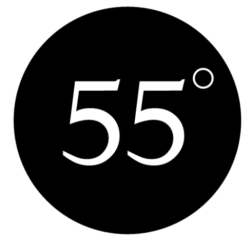
Conversation is a favorite pastime of mine. I guess I could even call it a hobby. I could listen for hours when I latch onto someone interesting and willing to tell their unfeigned story. I’ve been known to fall asleep on the phone mid-sentence while talking to Feng Dude. The last time it happened, my phone log indicated the call ended sometime around 3am. The sun woke me up in my patio chair that morning. How I love getting lost in a rich dialogue.
A good conversation starts with a few tabs, much like on my internet browser. I might have several tabs open at one time on my laptop. This feature makes it easy to pass back and forth from one topic to another. A person who can hold multiple tabs open keeps a good conversation rolling.
A tab for conversation I like to open up begins with this question. What makes you angry? This can lead us to insightful discoveries about what matters to each of us deep within. It might begin on the surface with the driver that was tailgating me on the way into work or the low-hanging fruit of infinitely maddening political topics. But I like to see if we can get past that and find out the anger that leads to vulnerable sadness.
Anger is a natural, and may I even say, necessary part of grief. Anger is how I am alerted to a wrong being done, or where I see injustice occurring. I get angry at my loss because I wasn’t created to lose. I didn’t sign up for the loss I just experienced.
As anger is an inevitable part of the grief process, I will eventually need to move past it. But many get tied up in this emotion and find it difficult to get unbound. I believe the trap is set, not because anger is present, but because anger goes unaddressed. When anger isn’t included in the conversation, it becomes like the wounded child that is ignored. That child will be heard one way or another.
I was met by anger on day 2 and it frightened me. I did not want to feel this way. But through the encouragement of a few trusted confidants, I looked anger in the face and listened. I bought a journal and dedicated it to translating the anger into words on a page. I even wrote a disclaimer in the front of the book, indicating that if anyone ever found this collection, please note that this is from the pen of a grieving man.
As I began, I wrote in it daily. And I didn’t like to. I wasn’t comfortable with how it felt to be so honest with myself. I was afraid it would make me trapped in the anger and define me as an angry person. But it did the opposite.
As I squared off with anger, the better part of my heart eased back in with a new invitation. I have nothing to fear of anger. It doesn’t need to decide anything for me. It’s only there to alert and warn me that something isn’t right. Like all other emotions, I need to respect anger and like any good conversation, I need to stop talking and listen to what it’s trying to say to me. Once its done its job of sounding the alarm, and anger feels heard, that’s when Hope and Love can step back into the leadership role of my heart.
It’s been several weeks since I made an entry into my anger journal. Mainly because I’m not angry anymore. But also because I honored the anger enough to pay attention.
Make today count.
